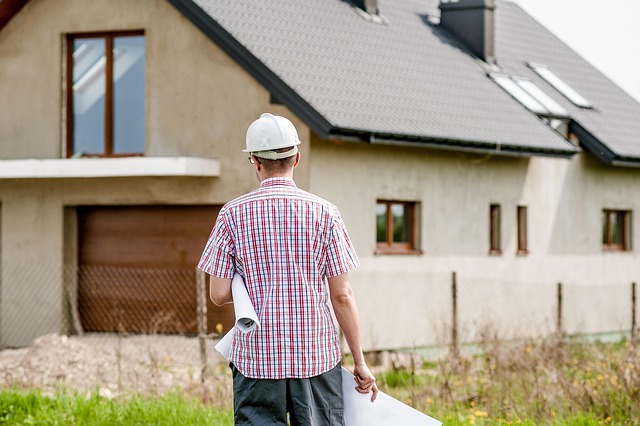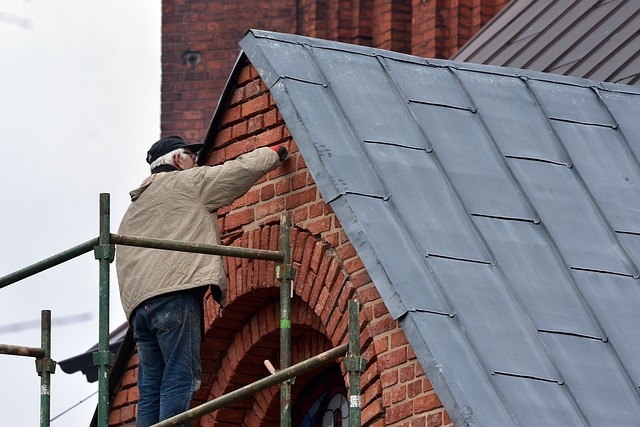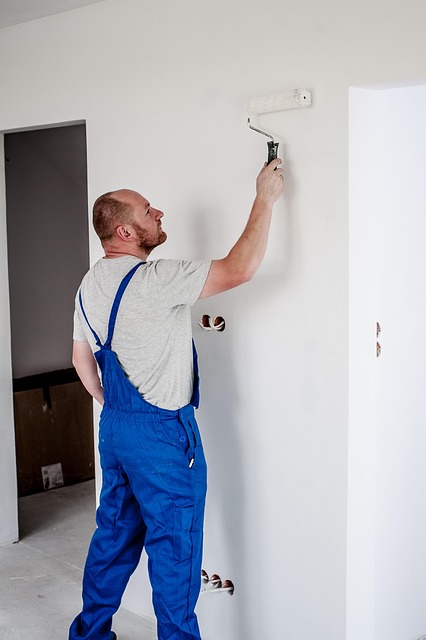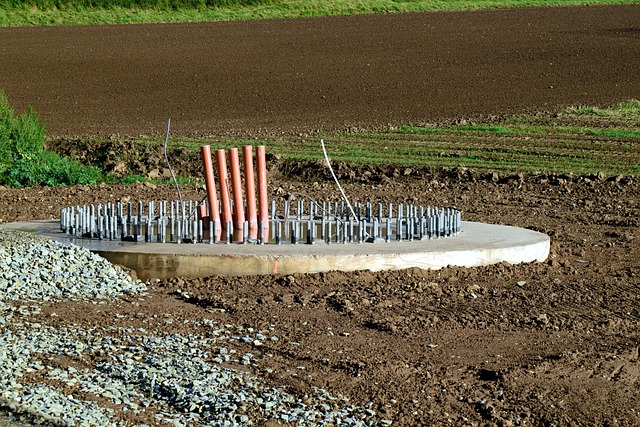Foundation settling, uneven floors, and structural damage are serious issues that require immediate attention from Foundation Repair Contractors. Early identification of these problems, often caused by poor soil conditions or shifting groundwater, is key to preventing significant structural damage. Choosing reliable contractors who employ modern techniques and high-quality materials is essential for long-lasting solutions and protecting home investments.
Cost considerations are crucial, with estimates depending on property-specific factors. Researching local market rates ensures fair pricing, avoiding future damage from inferior work. Reputable contractors follow best practices, use advanced technology, obtain necessary permits, and provide transparent communication, guarantees, and references. Regular maintenance, including inspections and proper drainage, prevents future foundation issues. Navigating legal requirements and clear communication with chosen Foundation Repair Contractors are vital for successful repairs and peace of mind.
Looking to fix your home’s shaky foundation? Understanding common issues, selecting the right Foundation Repair Contractors, and navigating the repair process is crucial. This comprehensive guide covers everything from identifying signs of foundation problems to ensuring safety and quality during repairs. Learn about various repair techniques, cost estimates, legalities, and effective communication strategies with contractors. Master the art of maintaining your home’s foundation post-repair and transform your living space into a stable, secure haven.
Understanding Common Foundation Issues: Signs and Causes

Foundation issues are a common problem for many homeowners, often leading to significant structural damage if left unaddressed. Understanding these problems is crucial when it comes to hiring Foundation Repair Contractors. Some of the most prevalent foundation concerns include settling cracks, uneven floors, and doors or windows that stick or swell. These issues can arise from various factors such as poor soil conditions, improper construction, tree root intrusion, or shifting groundwater levels.
Settling cracks, for instance, are typically caused by the soil beneath the home shrinking or expanding due to moisture changes. Uneven floors may result from weak or compressible soil, supporting structures settling unevenly, or even faulty plumbing. Foundation problems can also be attributed to tree roots infiltrating and weakening the foundation, especially in older homes. Identifying these signs early is key to preventing further damage and ensuring the longevity of your home’s structure.
The Importance of Choosing the Right Contractor

>/ (W/ la/ in 3, do send, 1? → (∗/4? w/n →, no? de, W/ but also 5/7
Types of Foundation Repair Techniques

When it comes to addressing foundation issues, various repair techniques are employed by professional Foundation Repair Contractors. The choice of method often depends on the specific problem and the type of foundation. One common approach is piering, which involves installing steel piers into the ground to support and stabilize the foundation. This technique is particularly effective for settling foundations or those with inadequate soil bearing capacity.
Another widely used method is underpinning, where contractors add additional support by installing new footings or columns beneath the existing foundation. This process is ideal for structures with cracked walls or uneven floors. For more extensive repairs, structural beams or wall anchors can be utilized to reinforce and realign the foundation, ensuring long-term stability. Each technique caters to different needs, making it crucial to engage expert Foundation Repair Contractors who can accurately assess and implement the most suitable solution.
Cost Considerations for Foundation Repairs

When considering foundation repair, one of the primary concerns for homeowners is the cost. The expenses can vary greatly depending on several factors unique to each property. The size and severity of the issue play a significant role; minor cracks or settlement may only require cosmetic repairs, while extensive structural damage could lead to much higher prices. Foundation Repair Contractors often provide estimates after inspecting the site, taking into account the type of repair needed, materials used, and labor costs.
Budgeting for these projects is crucial. Homeowners should research local market rates for foundation contractors to ensure they receive fair pricing. While it might be tempting to opt for the cheapest option, it’s essential to remember that inferior work could lead to further damage down the line. Quality craftsmanship and using durable materials are investments that guarantee long-lasting results, ensuring peace of mind and protecting one’s most significant investment—one’s home.
Ensuring Quality and Safety in Foundation Work

When selecting a residential foundation repair contractor, prioritizing quality and safety is paramount. Reputable contractors employ experienced professionals who adhere to industry best practices and building codes. They utilize high-quality materials and advanced techniques to ensure long-lasting repairs that protect your home’s structural integrity.
Proper foundation work demands meticulous planning, precise execution, and thorough testing. Foundation repair contractors should offer transparent communication, detailed estimates, and guarantees on their workmanship. Verifying certifications, licenses, and insurance is essential to safeguard against substandard or unsafe practices. Choosing a contractor with a proven track record in successful foundation repairs can prevent future damage and maintain the value of your property.
Process of Foundation Repair: Step-by-Step Guide

The process of foundation repair involves several crucial steps that Foundation Repair Contractors meticulously follow to ensure structural integrity and stability. It begins with a thorough inspection, where professionals assess the extent of damage through non-invasive methods like visual inspections, moisture readings, and ground movement analysis. If necessary, they may also employ advanced technology like radar or soil testing for accurate diagnosis.
Once the issue is identified, contractors design a tailored plan. This often includes underpinning, where additional support beams are installed to stabilize the existing foundation. Other methods could be piering, which involves inserting steel piers into the ground to bear the load of the structure, or wall anchors that secure the foundation walls. After obtaining necessary permits, the team executes the repair plan, ensuring compliance with local building codes and safety standards. The final step is reinforcement and restoration, where they strengthen the foundation and restore any affected areas to their original condition, providing long-lasting stability for the residence.
Maintaining Your Home’s Foundation Post-Repair

After completing foundation repair work, homeowners should focus on ongoing maintenance to prevent future issues. Regular inspection is key; checking for any signs of cracks, sinks, or uneven floors can help identify potential problems early on. Foundation Repair Contractors recommend establishing a routine that includes examining exterior walls, basements, and crawl spaces for any signs of movement or water damage.
Proper drainage around the house plays a crucial role in foundation health. Ensuring that rainwater is directed away from the foundation through adequate downspouts and landscaping can prevent erosion and moisture intrusion. Additionally, maintaining proper humidity levels inside the home is essential; using dehumidifiers in humid areas like basements can mitigate issues caused by excess moisture.
Legal and Permitting Requirements for Foundation Projects

When it comes to foundation projects, whether it’s a simple repair or a complex renovation, residential Foundation Repair Contractors must navigate a web of legal and permitting requirements. Each municipality has its own set of regulations that dictate everything from the type of materials used to the extent of alterations allowed. Failure to comply can result in costly fines and delays.
Before breaking ground, homeowners should consult with their chosen Foundation Repair Contractors to ensure all necessary permits are acquired. This process typically involves submitting detailed plans of the proposed work, which will be reviewed by local building authorities. These authorities assess compliance with building codes, structural integrity, and environmental considerations, among others, to issue the requisite approvals.
Top Tips for Effective Communication with Contractors

When hiring Foundation Repair Contractors, clear and effective communication is key to ensuring a successful project outcome. Begin by clearly defining your needs and expectations; discuss the specific issues with your foundation, desired repairs, and any design preferences. Keep an open line of communication throughout the process, providing timely updates and being responsive to contractors’ inquiries.
Regular meetings or check-ins can help monitor progress, address concerns promptly, and make informed decisions. It’s beneficial to ask for references and previous project details to gauge their expertise and work quality. Effective communication fosters trust, allows for better problem-solving, and ultimately leads to a more satisfying repair outcome with your chosen Foundation Repair Contractors.
